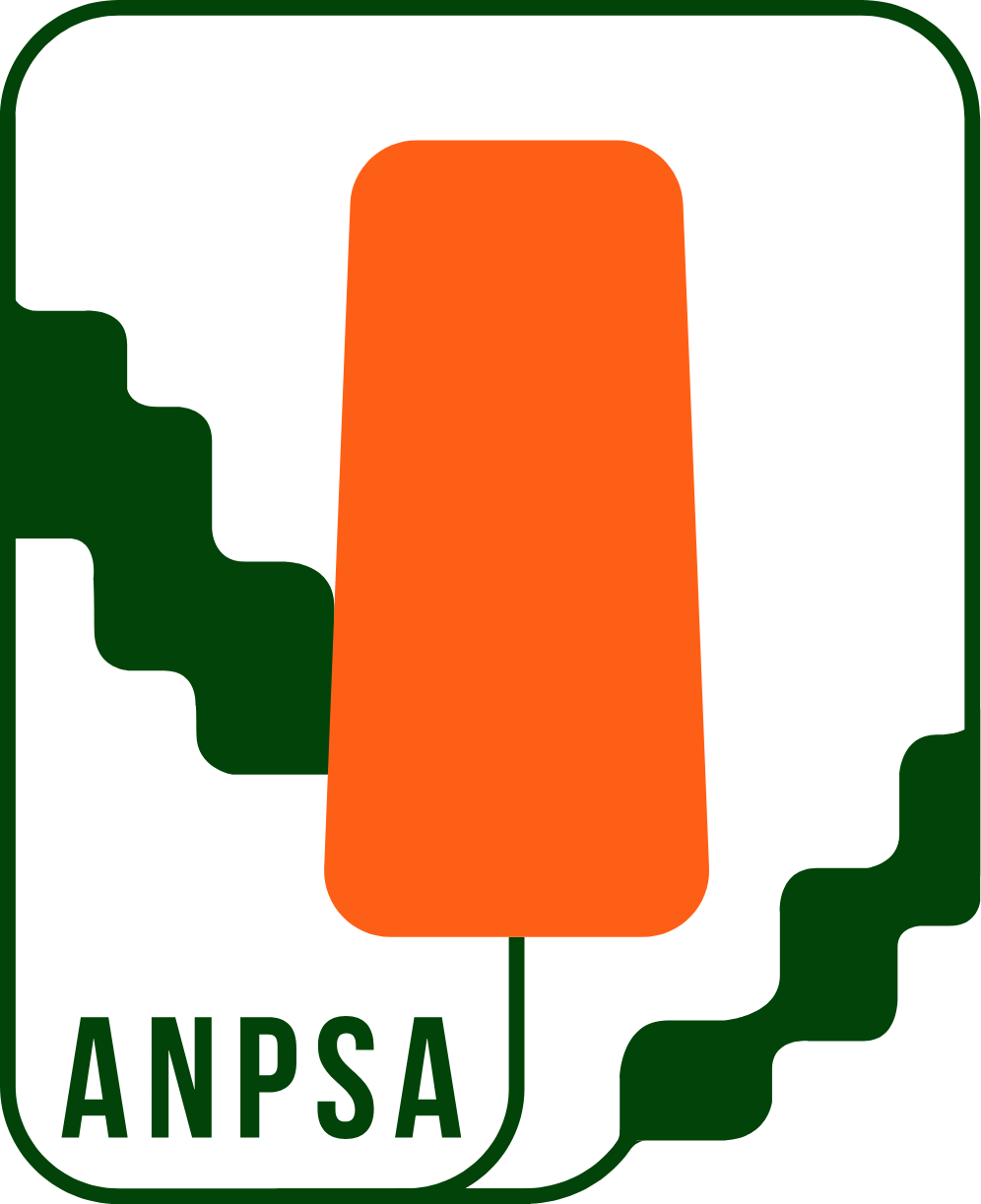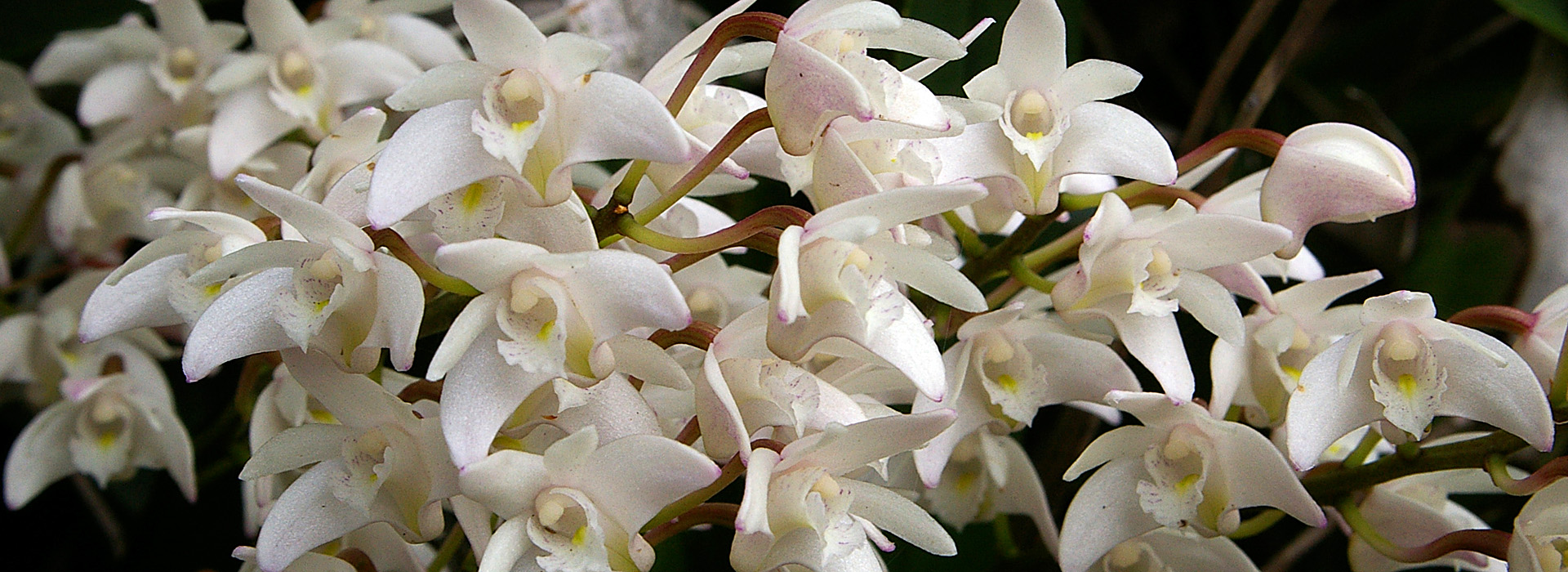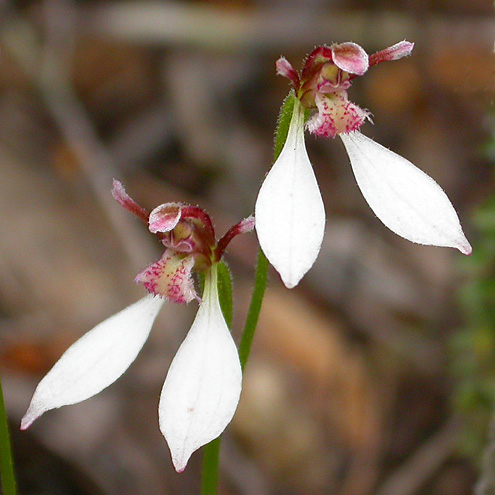In Australia there are about 110 genera found in all states. The most commonly cultivated native orchids are the epiphytic/epilithic type with the Dendrobium genus being by far the most commonly seen. Other genera in cultivation include Cymbidium and Phalaenopsis. Native terrestrial orchids are less commonly cultivated due to the specialised growing requirements required for most species. The most common native terrestrial orchid in cultivation is the Swamp Orchid, Phaius australis.
Orchid Family (Orchidaceae)
The Orchid Family is one of the largest plant families in the world with over 800 genera comprising more than 25,000 species. Orchids are perennial herbs and are probably the most widely cultivated plants worldwide.
Orchids may be divided into three broad groups:
- Terrestrial – growing in soil
- Epiphytic – growing on other plants for physical support (but not parasitic)
- Epilithic – growing on rocks
 Australian Native Plants Society (Australia)
Australian Native Plants Society (Australia)
